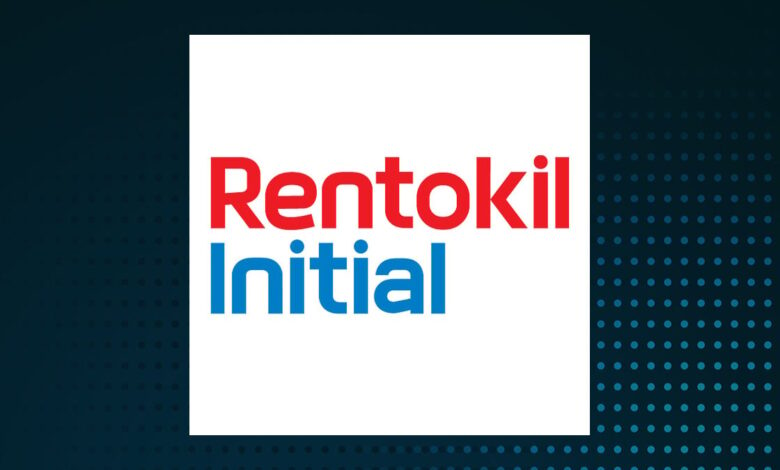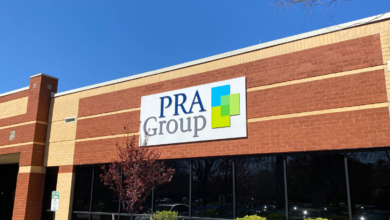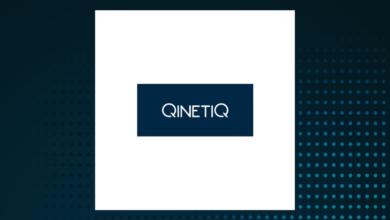Rentokil Share Price: A Deep Dive into Performance, Trends, and Market Sentiment

Explore a detailed analysis of Rentokil share price trends, market performance, and investor insights. Learn what drives this stock and what to expect in the future.
The Rentokil share price has long been a topic of keen interest among retail and institutional investors alike. As one of the global leaders in pest control and hygiene services, Rentokil Initial plc commands a substantial position in the FTSE indices and garners consistent attention in financial news and stock market discussions.
Understanding the movement of the Rentokil share price isn’t just about looking at charts and numbers; it requires a comprehensive view of market sentiment, industry trends, corporate performance, and macroeconomic conditions. Whether you’re a seasoned investor or just starting your journey in stock investing, exploring the dynamics behind the Rentokil share price can offer valuable insights into how markets perceive stability, innovation, and resilience.
What Influences Rentokil Share Price?
The Rentokil share price, like any publicly traded company, is influenced by a variety of factors. These include financial performance, market conditions, global economic factors, and even public perception of the brand. When Rentokil releases its quarterly or annual financial reports, shareholders pay close attention to revenue growth, profit margins, and any changes in operational strategy.
One of the key drivers for Rentokil’s share price is the company’s consistent performance in the pest control and hygiene sectors. These industries are not just recession-resilient—they’re essential. When economic downturns occur, consumers may cut discretionary spending, but pest control remains a priority for businesses and homeowners alike. This makes Rentokil a somewhat defensive stock in volatile markets.
Additionally, merger and acquisition activities often sway the Rentokil share price significantly. For example, if the company announces a strategic acquisition to expand its global footprint or improve its technological capabilities, the share price may respond positively. On the flip side, if a deal appears overpriced or risky, investors might react negatively.
Rentokil Share Price Performance Over the Years
If you’ve tracked the Rentokil share price over the past decade, you’ll notice a generally upward trajectory, albeit with occasional dips and corrections. The company has managed to maintain investor confidence through steady earnings, strategic acquisitions, and a focus on innovation in pest control technologies.
Back in the early 2000s, Rentokil went through a rough patch due to management changes and lackluster earnings. However, the company made a significant comeback by restructuring operations, divesting non-core businesses, and doubling down on pest control and hygiene services. These strategic decisions helped push the Rentokil share price upward over the long term.
More recently, the pandemic created a unique environment that benefited Rentokil in some ways. With heightened awareness of cleanliness and the need for sanitary spaces, demand for hygiene services surged. While some businesses closed or downsized, others increased contracts with service providers like Rentokil, stabilizing its revenue streams.
Market Sentiment and Investor Confidence
Investor sentiment plays a huge role in shaping the Rentokil share price. Positive news, such as strong earnings or successful acquisitions, can drive up share prices. Conversely, any hiccup—whether internal like a profit warning or external like global market turmoil—can create temporary downward pressure.
The role of analysts and brokerage recommendations also cannot be overlooked. When a top-tier analyst upgrades their rating for Rentokil or increases the target price, it sends a signal to the broader market. Retail investors and fund managers often adjust their positions based on such signals, which can cause short-term fluctuations in the Rentokil share price.
Moreover, social media and financial forums have started to play a subtle yet notable role. While Rentokil isn’t a “meme stock,” discussions around its financial performance or potential M&A activity can influence retail investor behavior. Increased mentions online, especially positive ones, tend to drive curiosity and often stock activity.
Comparing Rentokil with Industry Peers
To fully understand the Rentokil share price, it helps to compare it with industry peers. Companies like Ecolab, Rollins Inc., and Terminix are often used as benchmarks. These comparisons can be based on revenue, market capitalization, dividend yield, or stock performance.
Rentokil has a more global footprint than some of its U.S.-based counterparts, which gives it a strategic edge in terms of diversification. This broader geographic presence helps cushion the blow during regional economic downturns, making the Rentokil share price more stable in a volatile world.
In terms of valuation, Rentokil sometimes trades at a premium due to its growth prospects and strong brand recognition. However, when looking at the price-to-earnings (P/E) ratio or EV/EBITDA metrics, it’s essential to compare these to industry averages to gauge whether the current Rentokil share price represents fair value.
The Role of Dividends in Shareholder Value
Dividends are a significant aspect of shareholder value and influence the attractiveness of the Rentokil share price. While Rentokil isn’t primarily known as a high-dividend stock, it does offer consistent, albeit modest, dividend payouts. These can add a layer of stability for income-focused investors.
When a company like Rentokil announces an increase in its dividend payout, it’s often interpreted as a signal of confidence in future earnings. On the other hand, if dividends are cut or suspended, it could lead to a decline in share price as investor sentiment weakens. Fortunately, Rentokil has maintained a relatively stable dividend policy in recent years.
Dividend reinvestment can also enhance long-term returns. Shareholders who choose to reinvest their dividends back into the stock benefit from compounding, which can lead to a significant increase in overall portfolio value, especially if the Rentokil share price continues to climb.
Rentokil’s Global Expansion Strategy
One of the things that supports the Rentokil share price is the company’s aggressive global expansion strategy. Rentokil has made strategic acquisitions across North America, Europe, and Asia-Pacific to enhance its market reach and service capabilities.
These acquisitions are not just about expanding customer bases—they’re also about acquiring specialized technologies and regional expertise. For example, acquiring a local pest control firm in a new territory allows Rentokil to quickly scale operations without the time and capital investment required to build from scratch. This approach has been instrumental in bolstering the Rentokil share price by showcasing growth potential.
Moreover, globalization diversifies Rentokil’s revenue streams. When one market underperforms due to economic or regulatory challenges, another may outperform, providing a balancing effect. This geographic diversification is a key reason why many analysts consider Rentokil’s share price to be relatively stable compared to single-market competitors.
Innovation and Technology in Pest Control
Innovation is a big part of Rentokil’s brand identity and has positively impacted the Rentokil share price. The company invests heavily in smart pest control technologies, including IoT (Internet of Things) sensors, predictive analytics, and AI-driven systems that offer proactive solutions.
These innovations do more than just improve service—they enhance operational efficiency and reduce labor costs, which can significantly impact the bottom line. When investors see that a company like Rentokil is leveraging cutting-edge technology, it adds a layer of future readiness that’s often reflected in the share price.
Sustainability and eco-friendliness are also part of Rentokil’s innovation strategy. With rising awareness of environmental impact, customers and investors alike are paying more attention to how services are delivered. Rentokil’s focus on green pest control solutions has bolstered its reputation and provided additional support to its share price in ESG-focused investment environments.
Rentokil Share Price and Macroeconomic Trends
Macroeconomic trends inevitably affect the Rentokil share price. Interest rates, inflation, currency fluctuations, and GDP growth all play a role in how investors value companies like Rentokil.
During times of high inflation or rising interest rates, consumer spending may decline, and corporate clients may cut back on discretionary services. However, pest control is often considered essential, which insulates Rentokil from the worst effects of economic downturns.
Currency strength also plays a role. Since Rentokil earns revenue in multiple currencies, exchange rate movements can either boost or diminish earnings. A strong pound might reduce the value of overseas earnings when converted, potentially impacting the Rentokil share price negatively in the short term.
Rentokil Share Price: Technical Analysis Insights
Technical analysis offers another lens through which to view the Rentokil share price. Analysts often use tools like moving averages, Bollinger Bands, and RSI (Relative Strength Index) to predict short-term price movements.
When the Rentokil share price breaks above or below key resistance or support levels, traders might interpret this as a buy or sell signal. Although these patterns are not foolproof, they can influence market behavior, especially among day traders and short-term investors.
Volume analysis is another important component. A spike in trading volume, especially during earnings season or after major announcements, often precedes or accompanies a shift in the Rentokil share price. High volume confirms the strength of a price move, while low volume may suggest caution.
Table: Rentokil Share Price Performance Snapshot
| Year | Opening Price | Closing Price | Dividend Yield | Major Events |
|---|---|---|---|---|
| 2020 | £450 | ¤800 | 1.5% | Pandemic Boost in Hygiene |
| 2021 | ¤800 | ¨920 | 1.4% | Global Expansion |
| 2022 | ¨920 | ¨870 | 1.3% | Minor Correction |
| 2023 | ¨870 | ¨995 | 1.5% | Acquisitions in North America |
| 2024 | ¨995 | ©1040 | 1.6% | ESG Focus and Tech Investments |
Quotes from Market Experts
“Rentokil is a prime example of how essential services can become growth engines when supported by smart strategy and innovation.” – Financial Times Analyst
“The stability of the Rentokil share price reflects strong leadership and the ability to adapt to market changes swiftly.” – London Stock Exchange Commentator
FAQs About Rentokil Share Price
What is driving the current Rentokil share price? Market performance, strong earnings, strategic acquisitions, and technological innovation are major drivers. Investor sentiment and global expansion plans also contribute to the current valuation.
Is Rentokil a good stock to invest in? Rentokil is considered a stable and growth-oriented stock in the essential services sector. While not a high-dividend stock, it offers long-term growth potential and portfolio stability.
How does Rentokil compare to its competitors? Rentokil has a broader international presence than many competitors, giving it a strategic edge. It also invests heavily in innovation and sustainability, which can offer competitive advantages.
Does Rentokil pay dividends? Yes, Rentokil pays regular dividends. While the yield isn’t high, the company has a strong history of consistent payouts, which adds to its attractiveness for income investors.
What are the risks associated with investing in Rentokil? Key risks include global economic downturns, regulatory challenges, and currency fluctuations. However, the essential nature of its services helps cushion against severe losses.
Conclusion: What to Expect from Rentokil Share Price
The Rentokil share price represents more than just numbers on a chart—it tells a story of resilience, innovation, and strategic thinking. With a solid market presence, consistent dividends, and a reputation for adapting to industry changes, Rentokil remains a compelling choice for both cautious and growth-oriented investors.
If you’re considering adding Rentokil to your portfolio, understanding its past and future potential can help make an informed decision. As always, conduct thorough research and consult financial advisors when needed.





